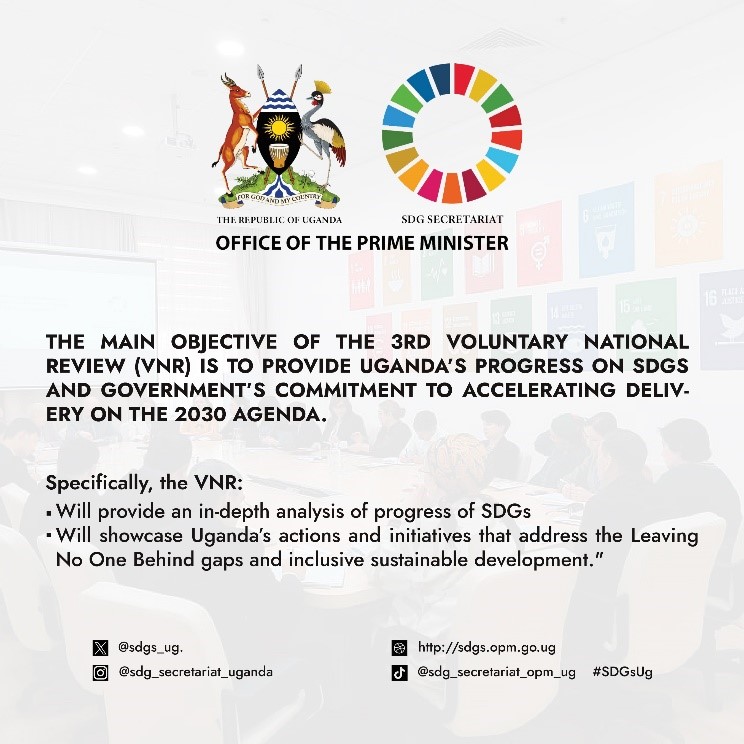
The Government of Uganda has developed a comprehensive coordination framework since 2016 to guide the implementation of the SDGs. The country has already submitted two Voluntary National Review (VNR) reports in 2016 and 2020, showcasing its dedication to these goals. In addition, Uganda has created SDG Localization Guidelines, adopted Voluntary Local Reviews, and integrated SDGs into its Comprehensive National Development Plans. Engagement with various stakeholders, including civil society, youth, the private sector, and development partners, has been pivotal. Uganda has also published SDG Progress Reports, including the 2021 Progress Report and the 2023 Midterm SDG Progress Review Report.
In September 2023, Uganda’s delegation, led by the Rt. Hon Prime Minister, participated in the UN SDG Summit. They presented Uganda’s SDG National Commitments and an acceleration and transformation plan for the next seven years, focusing on resilience, inclusive financing, leveraging science and technology, climate adaptation, data utilization, and strengthened coordination.
In July 2024, Uganda will present its third VNR report at the 12th session of the HLPF in New York. This session, under the theme “Reinforcing the 2030 Agenda and eradicating poverty in times of multiple crises,” will focus on key SDGs such as ending poverty and hunger, combating climate change, promoting peaceful and inclusive societies, and revitalizing global partnerships. The VNR process will involve extensive consultations and data collection from secondary and primary sources, including national statistics, regional forums, and direct stakeholder engagements. This inclusive approach aims to ensure comprehensive and representative input from all sectors of society.
The primary objective of Uganda’s third VNR is to provide an in-depth analysis of SDG progress and highlight actions addressing gaps and promoting inclusive development. The methodology included participatory consultations with key stakeholders like the legislature, ministries, development partners, civil society, the private sector, academia, local governments, youth, women, persons with disabilities, ethnic minority groups, and the media. Following the HLPF, Uganda has engaged the public through various channels to raise awareness about the SDGs. Efforts have included simplifying the VNR report for wider understanding, conducting press conferences, presenting to parliament and the cabinet, and fostering continuous dialogue and feedback mechanisms. The VNR report will serve as a critical tool for public education, advocacy, and the localization of SDGs, highlighting national strategies and fostering a culture of transparency and accountability.

